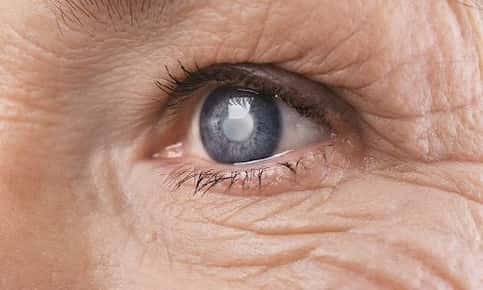
How You Can Reduce Your Risk of Developing Glaucoma
Glaucoma is one of the leading causes of vision impairment in the world, according to the World Health Organization. Although it's not always possible to prevent glaucoma, making a few lifestyle choices can decrease your risk of developing this progressive eye disease.
What is Glaucoma?
Glaucoma causes damage to the optic nerve, the crucial pathway between your eyes and brain. Seeing requires a complex interaction between the eyes and the brain. Light rays enter your eye and are projected on to your retina, a layer of light-sensing cells at the back of the eye. The retina converts the rays into signals that are sent to the brain via the optic nerve. Your brain then transforms the signals into easily recognizable images.
If part of the optic nerve is damaged due to high pressure inside your eye, your brain can't produce a complete image. As a result, you may have blind spots in your visual field or even lose vision completely if the damage is severe. Pressure increases can occur suddenly but often happen so slowly that you may not be aware that there is a problem until you notice changes in your vision.
Unfortunately, it's not usually possible to restore your lost vision once the damage has occurred. In some cases, glaucoma can occur even if your eye pressure isn't abnormally high.
Who Gets Glaucoma?
Glaucoma can affect anyone but is more likely to occur if you:
- Are age 40 or over if you're African American
- Have a family history of the disease
- Are extremely farsighted or nearsighted (depending on the type of glaucoma)
- Experienced an eye injury or had eye surgery
- Have high blood pressure or diabetes
- Have a thin cornea or an optic nerve that appears abnormal
- Are female or Asian
You may also be at increased risk if you have narrow angles between your irises and corneas. Drainage canals located between these two structures can become clogged easily if angles are narrow, resulting in an unhealthy increase in eye pressure.
If you have narrow angles, certain medications can increase your glaucoma risk. Medications that may raise the likelihood of glaucoma include some anti-depressants and allergy medications, cold medications, sulfonamide-containing drugs, oral steroids, anti-nausea drugs, and others.
What Can I Do to Reduce My Risk?
Lowering your risk of glaucoma can be as simple as:
- Treating Diabetes and High Blood Pressure. People who have diabetes and high blood pressure are more likely to develop glaucoma. Keeping your disease under control can help you reduce your likelihood of developing glaucoma.
- Exercising Regularly. Moderate exercise plays an important role in good health and may also help lower your glaucoma risk.
- Losing Weight: Excess pounds increase your risk of developing diabetes and high blood pressure.
- Eating a Healthy Diet. Adding plenty of fruits and vegetables and skipping junk food, highly processed food and foods high in saturated fat can be good for your health and your vision. Foods that contain carotenoids, the pigment that turns vegetables green, red, yellow or orange, are particularly good for eye health. They include spinach, kale, broccoli, brussels sprouts, green beans, carrots, peppers, corn, lima beans, and sweet potatoes.
- Avoiding or Limiting Alcohol and Caffeine. Moderate alcohol or caffeine use is best if you want to maintain good eye health.
- Wearing Eye Protection. Slipping on a pair of goggles before you play sports or use tools can prevent eye injuries that increase your glaucoma risk.
- Visiting Your Eye Doctor Regularly. Regular visits to your optometrist are the key to avoiding vision loss due to glaucoma. If your eye doctor notices that your eye pressure is high, he or she can recommend treatments to decrease it before it can damage your optic nerve. During a comprehensive dilated eye exam, your doctor will measure the pressure inside your eye; take a close look at your cornea, retina and optic nerve; and evaluate your side vision.
Have you had an eye exam lately? If not, now is the perfect time to schedule a checkup. Contact us to schedule your visit.
Sources:
Johns Hopkins Medicine: Will You Go Blind
https://www.hopkinsmedicine.org/wilmer/services/glaucoma/book/chapter_will_you_go_blind.html
National Eye Institute: Facts About Glaucoma, 9/15
https://nei.nih.gov/health/glaucoma/glaucoma_facts
Bright Focus Foundation: Glaucoma: Prevention & Risk Factors
https://www.brightfocus.org/glaucoma/prevention-and-risk-factors
Glaucoma Research Foundation: What Can I Do to Prevent Glaucoma?, 10/29/17
https://www.glaucoma.org/gleams/what-can-i-do-to-prevent-glaucoma.php
Bright Focus Foundation: Blood Pressure and Glaucoma
https://www.brightfocus.org/glaucoma/article/blood-pressure-and-glaucoma
World Health Organization: Blindness and Vision Impairment, 10/11/18
https://www.who.int/news-room/fact-sheets/detail/blindness-and-visual-impairment
